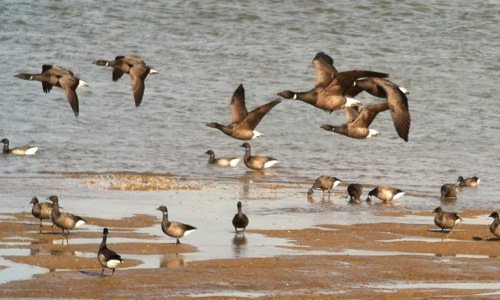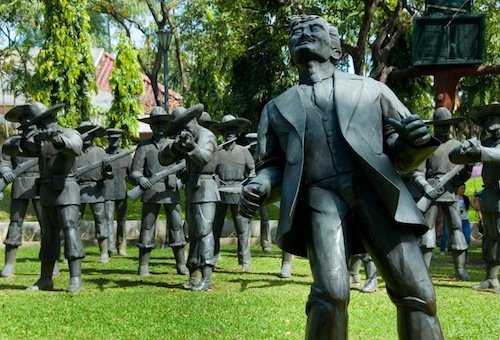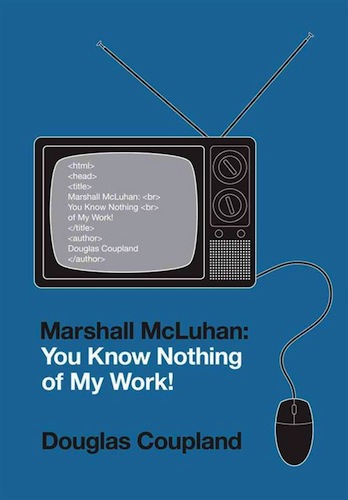There has been a bit of a kerfuffle in the UK over the past few days, since a court ruled that it was unlawful for Bideford town council to have prayers as a minuted part of its council meetings. The Daily Mail had a big front page headline CHRISTIANITY UNDER ATTACK; for once the Times managed to outdo the Mail for melodramatic language with Christianity on the rack as judge bans public prayer. Eric Pickles, the Communities minister, came out strongly against the decision, insisting that the UK is ‘a Christian country’, something I’ve complained about before. George Carey, the Ex-Archbishop of Canterbury came out with this wonderfully understated reaction for the Daily Mail:
These legal rulings may also mean Army chaplains could no longer serve, and that the Coronation Oath, in which the King or Queen pledges to maintain the laws of God and the lessons contained in the Gospels, would need to be abolished. This is a truly terrifying prospect.
Truly terrifying.
All of which seems ludicrously out of proportion when you actually look at the legal judgement, which had nothing to do with the separation of church and state: no such principle exists in British law. Moreover, the judge specifically ruled against the idea that this was a human rights issue, saying that just because non-Christian councillors were inconvenienced or made uncomfortable by the prayers, that did not amount to unlawful religious discrimination.
In fact, the ruling was based on a technical question: whether by holding the prayers, the council was going beyond the powers specifically allowed to them by the 1972 Local Government Act. Not only is this a narrow legal point with little relevance for the wider debate about the place of religion in public life; it’s not even relevant any more, because the 1972 Local Government Act has just been superseded by the new Localism Act which grants wider powers to councils. So prayers before council meetings are almost certainly legal again, although the point has yet to be tested in court.
And more importantly, all the other ways in which religion is entwined into our political system are still firmly in place. The Queen is still both head of state and head of the church; we still have 26 bishops sitting in the upper house of our legislature; bishops are appointed by the Prime Minister; Parliament officially opens every day with prayers lead by the Speaker; schools are supposed to hold daily acts of collective worships which are “wholly or mainly of a broadly Christian character”.
So why do these occasional conflicts provoke such a hysterical reaction from the religious? Why do those of us who argue that religion and politics are best kept separate get described as ‘militant’ and compared to totalitarian governments?
Well, a clue lies in new survey results released by the Richard Dawkins Foundation (1, 2). Yeah, I know, Richard Dawkins is not an unbiassed source; but the survey was performed by a respectable polling organisation and the questions look fair. The survey was intended to investigate religious attitudes among people who identified themselves as Christian in the 2011 census.
Some of the details are interesting but ultimately irrelevant, like the fact that only 35% could pick the first book of the New Testament out of Matthew, Genesis, Acts and Psalms; I mean, it’s the kind of thing you would expect a practising Christian to know, but it’s not a test of the sincerity or depth of someone’s belief.
And it’s not a surprise that many people tick the Christian box on the Census despite not going to church, or praying, or reading the Bible, or believing that Jesus was the son of God, or that he was resurrected, or even believing in God at all. The survey results are messy and contradictory, but it seems like about half of Census Christians are what you might call conventional Christians, people who go to church occasionally and believe some of the central tenets of the faith.
But the really startling result is the proportion of people identifying as Christian at all. For the 2001 Census, that figure was 72%; the new survey suggests the figure may have dropped to 54% in 2011. If that number holds up when the official census data is released, it represents a remarkable cultural shift in ten years.
I’ve complained before about people who say that the UK is a Christian country. I’ve argued on historical/philosophical grounds, that there’s nothing particularly Christian about our most important values — democracy, the rule of law, free speech, tolerance, humour — and I’ve argued on political grounds, that to call this a Christian country is exclusionary, because it suggests that those of us who are not Christians are therefore less British.
But if only 54% of the population identify as Christian in even the loosest sense, then it’s barely even statistically true that the UK is a Christian country.
And that, I think, is the reason for all the hyperbolic stuff about ‘militant secularism’. It’s not that they believe that Richard Dawkins or the National Secular Society have profound political influence, that all it’s going to take is one strongly worded opinion piece in the Guardian for the whole edifice to come tumbling down.
No, the fear is that this is already a secular country, and that it’s only a matter of time before the politics catches up with reality. The fear is that Dawkins is pushing on an open door.




